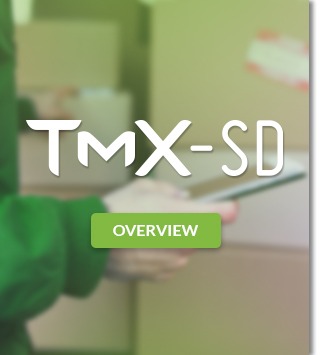
Sales and Distribution Operational Challenges
Sales and Distribution records of PepsiCo bottlers were being maintained manually via spreadsheets. Such a method had its shortcomings ranging from delayed visibility to greater potential of human error. These manual processes were leading to increased inefficiencies and bottlenecks due to personnel and operational realities, such as:
- Human errors in manual calculations of sales and payments
- Long order processing times for field agents at branch offices
- No reliable way to ensure sales representatives’ visit to their complete route
- Difficulties in maintaining centralized customer surveys and their responses
- No systematic way to track tertiary sales i.e. consumption from retailers to end users
- Complex analysis of Target vs. Achievement of field agents
What PepsiCo bottlers were expecting
These distributors of PepsiCo kicked off their digital transformation journeys with clear and ambitious goals including:
- Automation of distribution operations
- Real-time monitoring of secondary sales across the country
- Improved coverage of outlets using geo-fencing, resulting in increased drop size
- Market Surveys and Sales Audit
- Increased sales team efficiency and productivity
- Automated route planning and agent field and time tracking using a mobile application
- Completely paperless environment
- Decision Support System with dashboard and analytics across all business areas
- Integration with primary ERP system
- Disaster Recovery and high availability to ensure business continuity
TMX-SD Steps In
TMX-SD is a Field Mobility Solution for managing end-to-end Sales and Distribution processes with a mobile application for field agents and a web portal for branch, regional and head office administration. It allows field agents, distributors and sales managers to manage key tasks with ease and efficiency. TMX-SD addresses the main issues of PepsiCo, as follows:
- The mobile application operates in both online and offline mode to cater for internet connectivity constraints in certain areas. It requires the agent to add quantities of products only. Calculations, discounts and promotions are done automatically; thereby saving time and reducing the chances of error.
- The mobile application provides a customized pre-defined Order Booking Flow. This feature ensures that all the activities termed as mandatory such as asset tracking and merchandising are performed by field agents.
- Orders entered in the mobile application are automatically synced on the administrator’s web portal in real-time. With Database Synchronization, processing time is reduced to just a few minutes, as compared to the half an hour per sales representative or delivery man at the branch previously.
- TMX-SD has a comprehensive Inventory Management System through which administration can track all related transactions: batch upload, stock issuance and stock transfer to and from a particular warehouse.
- TMX-SD has a comprehensive Empty Bottle Management System that supports spot-selling model and keeps records of the deposits, return orders and sales on a per-customer basis, thus enabling the distributor to manage their bulk water division.
Market Surveys via TMX-SD
TMX-SD provides a wide range of custom surveys such as Market Visit Survey, WorkWith Survey and Sales Audit Survey. These surveys are used to obtain necessary operational information including stock availability, competitor information, timely deliveries and retailer feedback. Moreover, based on these surveys, TMX-SD allows supervisors to assign certain tasks to sales representatives to be completed before a target date.
Analytics Dashboard
TMX-SD provides an integrated Microsoft Power BI Dashboard for management executives with custom KPIs as required by the distributor. These KPIs enable the executives to take smart, insightful and informed decisions regarding business operations based on reliable and real-time data.
Agent Tracking
The mobile application tracks complete movement of the field agents and records all performed activities (e.g. order booking, payment collection) with a real-time map location, as well as date and time. Geo-fencing makes it necessary for the field agents to be physically present at the location of customer. This, along with mandatory picture requirements in case of certain events, ensures the visit of a complete route.
TMX-SD and ERP integration
Sales and Distribution of PepsiCo bottlers consisted of two parts – Primary Sales and Secondary Sales. Primary Sales are managed within an ERP system whereas TMX-SD covers Secondary Sales.
For PepsiCo distributors to effectively carry operations from Primary to Secondary Sales, certain integration points consisting of journey plans, payment collection, master data of users and customers were identified to help automate the data population from the primary ERP system to TMX-SD and vice versa. This successfully eliminated the need for generating and maintaining data in two different systems.

